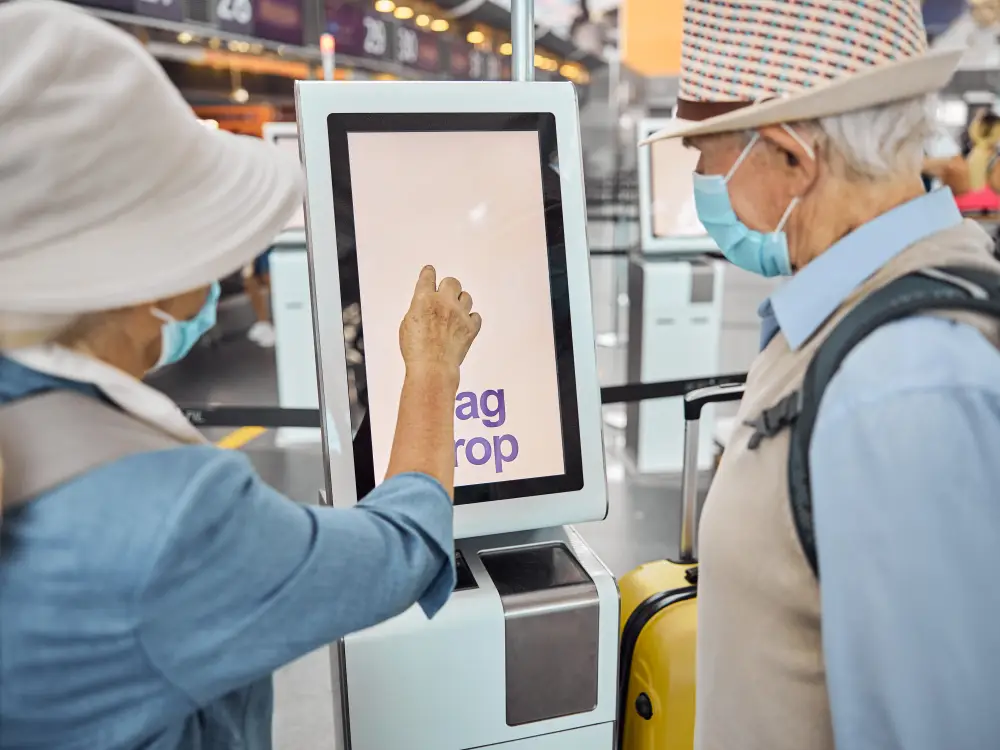The Rise of Interactive Self-Service Kiosk: Revolutionizing Customer Experience
In today’s fast-paced world, businesses are constantly seeking innovative solutions to enhance customer experience and streamline operations. One such technological advancement that has gained significant traction is the
interactive self-service kiosk. These kiosk are not just a convenience; they are transforming the way businesses interact with their customers, offering a seamless blend of efficiency, engagement, and personalization.

What is an Interactive Self-Service Kiosk?
An interactive
self-service kiosk is a digital touchpoint that allows customers to perform various tasks independently, without the need for direct assistance from staff. These tasks can range from placing orders, making payments, checking in for appointments, to even gathering information about products or services. Equipped with user-friendly interfaces and often integrated with advanced technologies like AI, these kiosk are becoming increasingly popular in retail, hospitality, healthcare, and many other sectors.
The Benefits of Interactive Self-Service Kiosk
1. Improved Customer Experience:
One of the primary benefits of interactive self-service kiosk is the enhanced customer experience they offer. By enabling customers to complete tasks on their own terms and at their own pace, kiosk reduce wait times and eliminate the need for long queues. This autonomy not only speeds up transactions but also empowers customers, making them feel more in control of their interactions.
2. Increased Efficiency:
For businesses, efficiency is key to maximizing productivity and profitability.
Interactive kiosk streamline operations by handling routine tasks that would otherwise require human intervention. This allows staff to focus on more complex and value-added activities, ultimately boosting overall efficiency. In sectors like quick-service restaurants, self-service kiosk have been shown to significantly reduce order processing times, leading to faster service and higher customer turnover.
3. Enhanced Data Collection:
Interactive kiosk provide businesses with a valuable tool for data collection. By tracking user interactions, preferences, and behaviors, businesses can gain insights into customer needs and preferences. This data can then be used to tailor marketing strategies, improve product offerings, and create more personalized experiences. Additionally, kiosk can be integrated with loyalty programs, encouraging repeat business and fostering customer loyalty.
4. Cost-Effective Solution:
While the initial investment in self-service kiosk may seem high, the long-term cost savings are substantial. By automating routine tasks, businesses can reduce labor costs and minimize errors associated with manual processes. Furthermore, kiosk operate 24/7 without the need for breaks, making them an ideal solution for businesses looking to provide round-the-clock service without incurring additional staffing expenses.
5. Flexibility and Customization:
Interactive self-service kiosk are highly customizable, allowing businesses to tailor the interface and functionality to meet specific needs. Whether it’s a hotel check-in kiosk that offers multilingual support or a retail kiosk that highlights promotional offers, businesses can design the kiosk experience to align with their brand and customer expectations. This flexibility ensures that kiosk can adapt to a wide range of industries and use cases.

Industries Benefiting from Self-Service Kiosk
Retail:
In the retail sector, interactive kiosk are being used for everything from self-checkout to product information. Shoppers can quickly scan items, complete transactions, and even receive personalized recommendations, all without needing assistance from sales staff.
Hospitality:
Hotels and restaurants are increasingly adopting self-service kiosk to streamline check-ins, reservations, and orders. These kiosk help reduce wait times, enhance guest satisfaction, and free up staff to focus on delivering exceptional service.
Healthcare:
In healthcare settings, self-service kiosk are revolutionizing patient check-ins, appointment scheduling, and payment processing. By automating these processes, healthcare providers can reduce administrative burdens and improve patient flow.
Transportation:
Airports and transit stations utilize interactive kiosk for self-check-in, ticket purchases, and information services. These kiosk not only enhance the traveler experience but also help manage large volumes of passengers efficiently.

Conclusion
Interactive self-service kiosk are more than just a technological trend; they are a powerful tool that can transform customer interactions and drive business success. As more industries recognize the value of these kiosk, their adoption is expected to continue growing, further cementing their role in the future of customer service. By investing in interactive self-service kiosk, businesses can stay ahead of the curve, offering their customers a convenient, efficient, and personalized experience that keeps them coming back for more.









